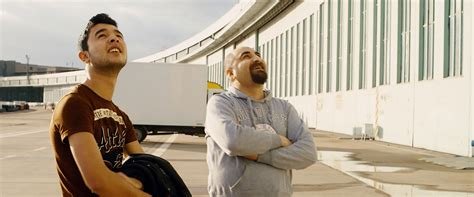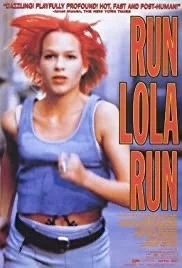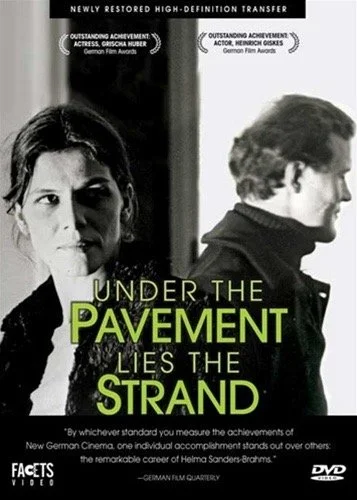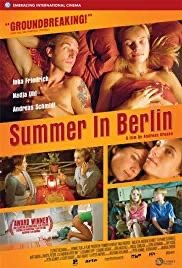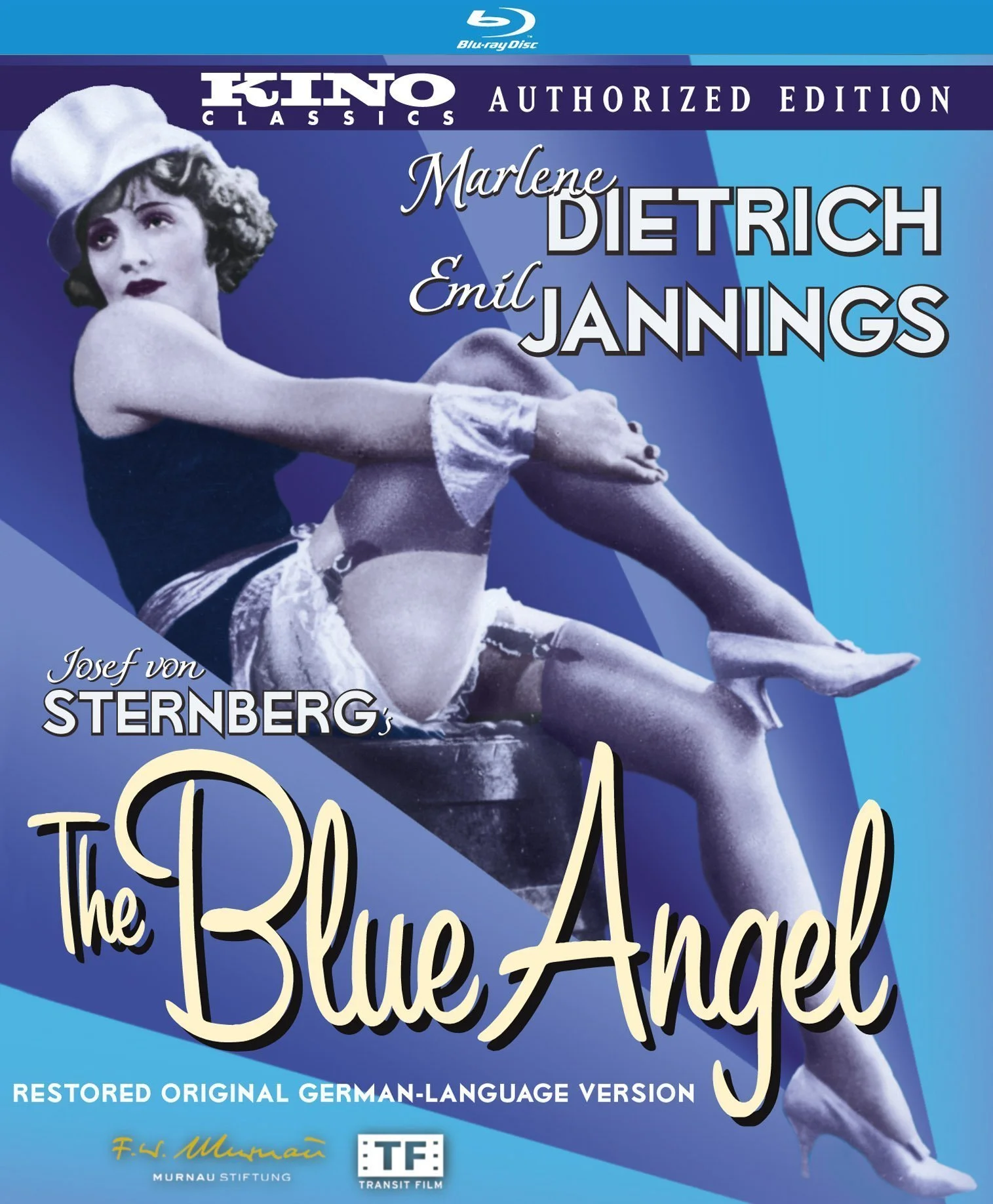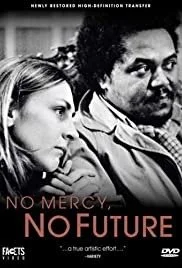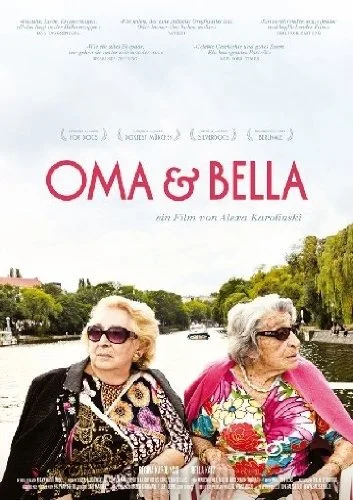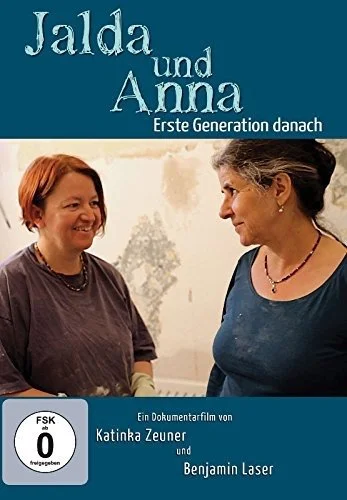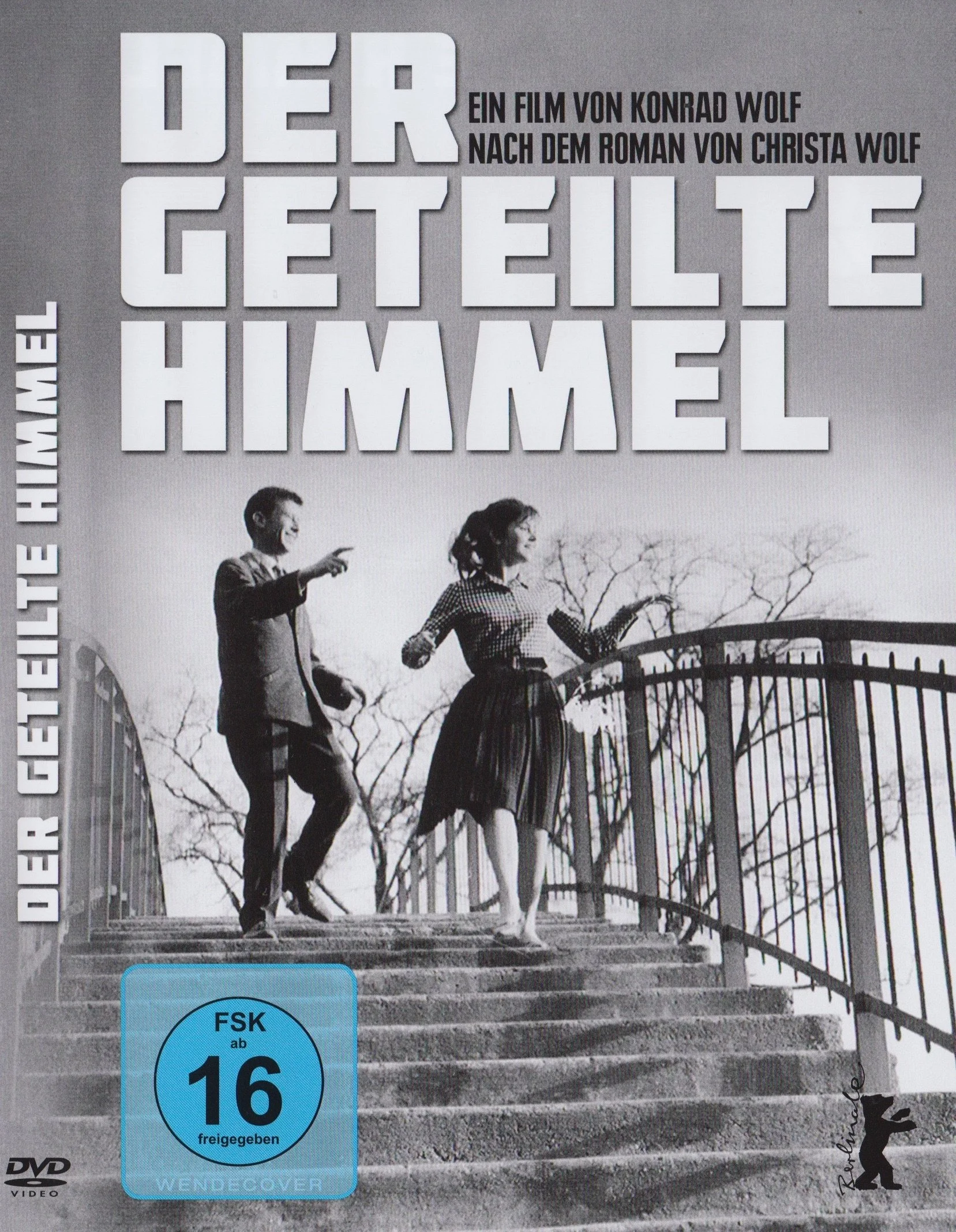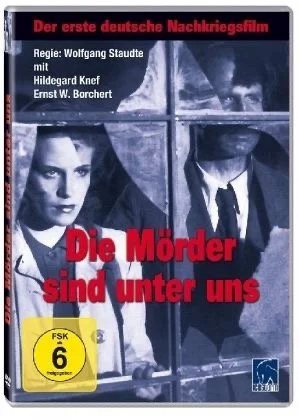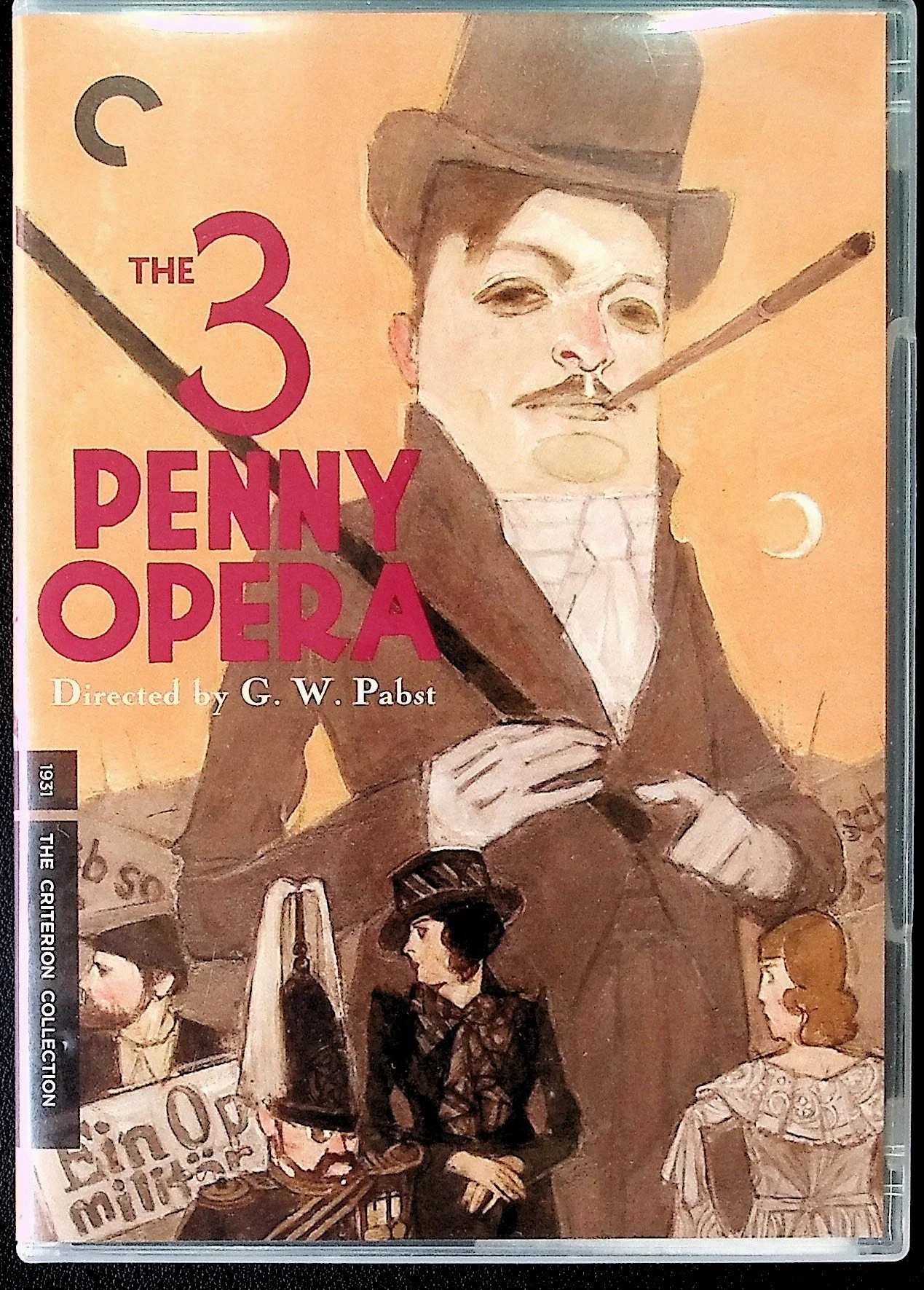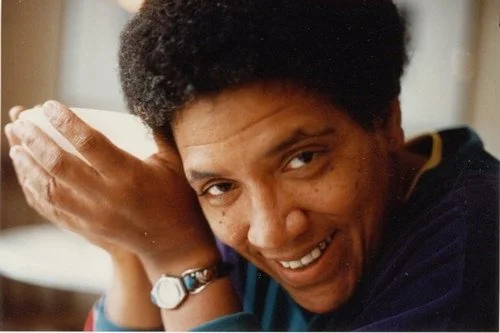- Activism
- Animation
- Asylum
- Austria
- Berlin
- Black Germans
- Childhood
- Cologne
- Colonialism
- Comedy
- DDR
- Documentary
- East/West Germany
- Environment
- Food
- Hamburg
- Health
- Holocaust
- Immigration
- Intergenerational Families
- Jewish
- Judicial system
- Lesbian/Gay
- Lübeck
- Munich
- National Socialism
- Politics
- Pomerania
- Racism
- Religion
- Sexism
- Short films
- Stuttgart
- Switzerland
- Twins
- Weimar Republic
Zentralflughafen THF | Central Airport
Berlin's Tempelhof Airport was opened in 1923 and, under Adolf Hitler, extended to become the world's largest airport which was finally closed in 2008. But even today Tempelhof Airport remains a place of arrivals and departures being used simultaneously as a refugee shelter and a leisure park for the inhabitants of Berlin. A historically un
My Little Sister | Schwesterlein
The Bottom Line Little Sister is brother's keeper.…The screenplay, by the directors, keeps coming back to the idea of women being forced to define themselves in relationship to others while men are allowed and even encouraged just to be themselves.
Auf den zweiten Blick / At Second Glance
At Second Glance is set in Berlin and features three couples living with vision loss. This thought-provoking movie about love and perception asks us to engage with, and expand, our understanding of diversity, including different abilities.
This award-winning film centers on Kay and Falk, Benjamin and Elena, Till and Pan in the big city juggernaut Berlin—who meet, discover and feel attracted to each other.
Run, Lola Run
Presenting his third feature after last year’s acclaimed Wintersleepers, Tom Tykwer cranks up the volume, stiffens the pace, and jettisons us on one of this year’s most exhilarating cinematic adventures. A breathtaking race against the clock, Run Lola Run straps Tykwers’ playfully hip sensibilities to a fun-filled mix of romance, thrills, and action as his tireless heroine pounds the pavement and racks her brain to save her lover from danger. Manni and Lola are twenty-something Berliners, way past cool and desperately in love.
When Manni, a local criminal’s errand boy, loses twenty thousand Marks, he has twenty minutes to find the money or face retaliation. Not the brightest bulb, Manni turns to the quick-witted, resourceful Lola to devise a plan to save his hide. And so she does, and off she sprints, running for Manni's life, for her love, and to find money somewhere, somehow.
Unter dem Pflaster ist der Strand
Berlin, 1974. Grischa and Heinrich are actors, accidentally locked in the rehearsal hall one night. He tries to seduce her; she’s puts him off. Later she dumps her husband and sleeps with Heinrich, who ups the ante by suggesting they have a child. She takes him seriously by initiating a journalistic project interviewing working mothers, asking how they balance work and family, delving into their sexual histories. Heinrich sulks when she spends evenings on the project, he’s childish. Should she leave him? The story plays out against the backdrop of left-wing political agitation.
Sommer vorm Balkon
A tragicomic movie which focuses on two women and their daily struggle for survival during a summer in Berlin. Katrin, a jobless single mom, and Nike, a nurse, live in the same house and are best friends. Although always dating the wrong men and still pursuing for happiness, they don't lose their humor and spend many nights together on Nike's balcony, drinking and chatting. However, Nike gets to know the trucker Ronald one day...
The Blue Angel
An elderly professor’s ordered life spins dangerously out of control when he falls for a nightclub singer.
Immanuel Rath is a stuffy, disciplinarian professor who is shocked to discover his students passing around a postcard of Lola-Lola, a singer at The Blue Angel cabaret. Hoping to catch his students there, Professor Rath visits the nightclub and witnesses Lola-Lola's performance. Entranced by her dissolute charms, he gets drunk on champagne and spends the night with her. The ensuing scandal causes him to lose control of his students and he is terminated from his position. Returning to Lola, he agrees to marry her and joins the troupe. His humiliation at having to play a clown onstage is compounded by Lola’s attraction to the strongman Mazeppa. To make matters worse, the troupe returns to the professor's hometown, forcing him to acknowledge how far he has fallen.
No Mercy, No Future
Veronika Christoph, the troubled daughter of uncaring bourgeois parents, has been institutionalized due to her schizophrenia. Without proper psychiatric treatment for her unearthly visions, she prowls the streets along the Berlin Wall at night in search of God, yet settles for the company of strange, exiled men.
Oma & Bella
Oma and Bella is an intimate glimpse into the life of two dynamic elderly Jewish women in Berlin. The film follows them as make elaborate dishes recalled from their childhoods, before the Holocaust. Through the cooking of the sumptuous meals, they retain a part of their past past while remaining very much engaged in the present.
Jalda und Anna: Erste Generation danach
Jalda Rebling and Anna Adam share many things. Not only that they both live together in the Prenzlauer Berg district of Berlin and that they both decided to express their lives in art. What unites the two much more is the fact that they are daughters whose mothers each survived the Holocaust in Auschwitz. And this aspect of the past can be found in many facets of their lives today. The film accompanies the cheerful ladies as it shows how they use their work as artists to reflect on and comment on the events of the past. Anna’s art projects such as the “happy hippie jew bus” are just as much a part of this as Jalda’s work as a musician in a medieval Jewish music style band and her work as a member of the Concervatice Yeshiva University in Jerusalem.
Herr Lehmann
In October 1989, the part of the West Berlin borough of Kreuzberg called SO 36, had been largely shut off by the Wall from the rest of the city for 28 years. A lethargic sub-culture of students, artists, bohemians and barflys had flourished among crumbling buildings. Part of that microcosm is barkeeper Frank, semi-formally called ‘Herr Lehmann’ by friends and patrons. He hangs out drinking, sports utter disregard for anything beyond SO 36 and lazily pursues an affair with cook Katrin. His lifestyle is gradually disturbed, when his parents show up for a visit, things go awry with Katrin and his best friend Karl starts to act strange. Meanwhile, political turmoil mounts on the other side of the Wall.
Jargo
A handsome boy on the brink of adulthood finds his quest to become a man leading him down a dangerous path in director Maria Solrun’s dark coming-of-age tale. Jargo (Constantin von Jascheroff) has everything a young man could want; a lavish home in Saudi Arabia and more money than he knows what to do with. When his father (Udo Kier) suddenly and unexpectedly commits suicide, however, Jargo is forced to relocate to a Berlin housing project, where he strikes up a friendship with young Kamil (Oktay Özdemir), a low-rent Turkish criminal …
Hoffnung im Herz
A moving documentary about the life and untimely death of Ghanaian-German poet, academic and political personality May Ayim. Ayim was one of the founders of the Black German Movement, and her research on the history of Afro-Germans, but also her political poetry, made her known in Germany and other countries.
Ayim wrote in the tradition of oral poetry and felt a strong connection to other black poets of the diaspora. Poetry gave her an opportunity to confront the white German society with its own prejudices. Interviews and poems reveal the search for identity, how and why the term Afro-German was introduced. An insightful look at how a young black woman experiences the German reunification.
Der geteilte Himmel
While recovering from a mental breakdown, the young Rita Seidel recalls the last two years, in which she fell in love with Manfred, a chemist who is ten years older. As Manfred became disillusioned with his opportunities in East Germany, he moved to the West. Rita followed him there and tried to persuade him to return but soon realized he would never do it.
Die Mörder sind unter uns
After returning from a concentration camp, Susanne finds an ex-soldier living in her apartment. Together the two try to move past their experiences during WWII. A biographical portrayal of Simon Wiesenthal, famous Nazi Hunter. From his imprisonment in a Nazi Concentration Camp, the film follows his liberation and his rise to become one of the leading Nazi hunters in the world, bringing such criminals to justice as Adolf Eichmann and Klaus Barbie.
Die 3-Groschen-Oper
The Threepenny Opera differs in significant respects from the play and the internal timeline is somewhat vague. The whole of society is presented as corrupt in one form or another. Only some of the songs from the play are used, in a different order. Bertolt Brecht and Kurt Weill, the playwright and composer of the stage play that the film is based on, were originally hired to adapt the play for film, but Brecht quit in the middle of production, while Weill continued working on the film until he was fired. The two each sued Warner Bros. and the German production company on the basis that sale of the rights stipulated that nothing in the stage production could be changed for the film. Brecht and Weill intended the piece as a satire on capitalism, and claimed that the ideological basis of the story was softened by director G. W. Pabst, who wanted the film to be more entertaining. Brecht was accused of breach of contract and his suit was rejected, but Weill won his suit.
Audre Lorde-the Berlin Years: 1984-1992
Audre Lorde – The Berlin Years 1984 to 1992 focuses on Audre Lorde’s relation to the German Black Diaspora, her literary as well as political influence, and is a unique visual document about the times the author spent in Germany. The film is also for coming generations a valuable historical document of German history, which tells about the development of an Afro-German movement and the origins of the anti-racist movement before and after the German reunification.
Die Fremde
A Turkish German woman wages a near-hopeless battle to assert her independence from the oppressive values of her family and their Old World culture in When We Leave, a doleful melodrama. There are some intense, moving sequences, but too much emotional badgering and a general shortage of finesse. The beleaguered central character, Umay (Sibel Kekilli), a German-born woman of Turkish background, suffers physical abuse from her husband in Istanbul. Pushed beyond her limit, she flees with their young son (Nizam Schiller) to her family in Berlin, where she hits a wall of cultural attitude. By leaving her husband and, worse yet, taking the boy, she has brought shame on the family. (San Francisco Chronicle)
Director Feo Aladag made the movie in the wake of a series of honor killings in Germany's Turkish community.
Die Legende von Paul und Paula
The film made the band Puhdys a household name in East Germany. The band performs four songs in the film, all of which drew heavily upon specific western pop songs. The film’s enduring popularity led to a stretch of waterfront on the Rummelsburger See (Rummelsburg Lake) in Berlin-Lichtenberg, near where the boat scene was filmed, to be renamed Paul und Paula-Ufer (Paul And Paula Shore).
Paul’s new apartment was on the third floor of Singerstraße 51 in Friedrichshain. Paula’s apartment across the street was demolished, as shown in the film. A supermarket now occupies part of the site.
Berlin Ostbahnhof can briefly be seen in some of the outdoor scenes, as it is only a short distance from the Singerstraße. The supermarket where Paula worked is located at what was then Leninplatz (now Platz der Vereinten Nationen).

